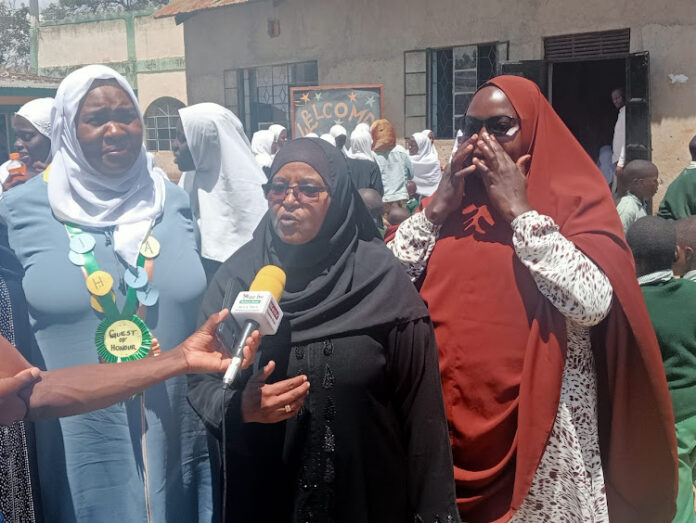In a powerful display of solidarity, Muslim women in the Western region of Kenya are taking a stand against the rising cases of femicide. They are sending out a cautionary message to women about the potential dangers of online encounters with strangers. The call for vigilance intensifies as the community grapples with the tragic loss of lives, emphasizing the need for caution in online interactions and advocating for respect and security for all women in the country.
Jemila Salim, addressing the issue on World Hijab Day at Muslim Primary School in Bungoma, attributed the surge in femicide cases to the negative influence of social media. She urged women to use online platforms wisely and condemned the alarming rate at which women are being murdered in Kenya. Salim emphasized the importance of adopting modest attire, adhering to African culture, and staying true to one’s religion as a means to address femicide.
Raila Odinga and Azimio Leaders Rally Support for Embakasi Fire Victims with KSh 2 Million Donation
Highlighting the significance of behavior, associations, and attire, Salim urged adherence to religious values and discouraged the imitation of foreign cultures. She emphasized the need for caution in accepting free offers online, warning of potential perilous consequences.
Khadija Juma, Commissioner at Commission Revenue Allocation (CRA) and Patron of Western Kenya Muslim Sacco, used the occasion to stress the importance of World Hijab Day in educating the public, especially Muslims, on the significance of wearing a Hijab. Juma advocated for the right of Muslim learners to wear Hijabs in schools, citing a Bill presented in Parliament in 2022 that was passed in favor of this religious practice.
DCI Probes Death of Bull Caretaker as Khalwale Postpones Burial
On the issue of femicide, Juma called on parents to provide proper guidance to their daughters, emphasizing the importance of proactive parenting. Rahma Issa, a social advocate and maternal health enthusiast, suggested the establishment of safe houses for gender-based violence (GBV) survivors, where they can receive protection, counseling services, and health support. Issa also urged the judicial system to expedite the legal process against perpetrators and criticized county governments for delays in passing existing policies related to femicide.
As Muslim women join forces to condemn femicide and advocate for caution in online interactions, their collective voice echoes a plea for respect, security, and the safeguarding of women’s rights in Kenya.


